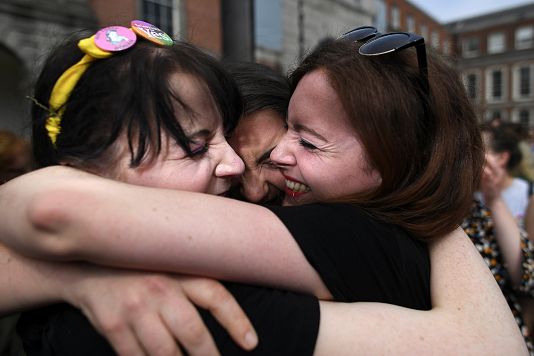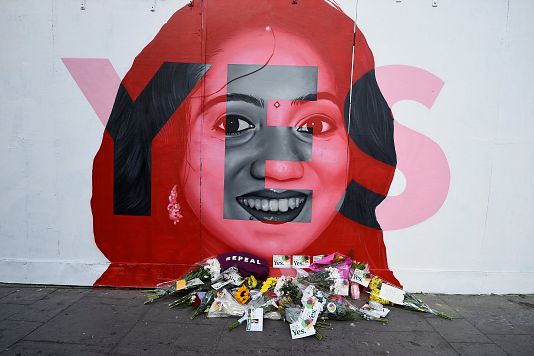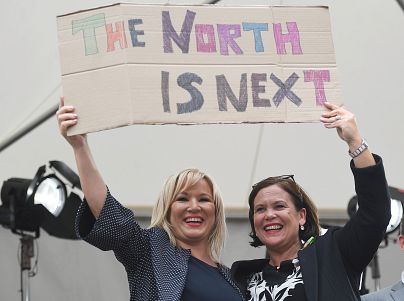Irish voters back a referendum by over 66% to liberalise abortion laws, according to the official result.
Ireland has voted overwhelmingly to repeal its ban on abortion in a referendum the Irish Prime Minister Leo Varadkar described as a “quiet revolution.”
 ADVERTISEMENT
ADVERTISEMENT
 ADVERTISEMENT
ADVERTISEMENT
The result was a landslide 66.4% 'yes' vote against 33.6% who voted 'no'.
Voters were asked if they wished to scrap the eighth amendment, which gives an unborn child equal rights to life as a pregnant mother.
Currently, abortion is only allowed when a woman's life is at risk, but not in cases of rape, incest or fatal foetal abnormality.
Only one constituency- Donegal- voted against repealing the bill. 51.9% voted against the change.
"A quiet revolution"
Varadkar, who campaigned to repeal the laws, had called the vote a once-in-a-generation chance.
“What we see is the culmination of a quiet revolution that has been taking place in Ireland over the last couple of decades,” said Varadkar to journalists in Dublin, who became Ireland’s first openly gay prime minister last year.
Record turnout
The final result was announced at Dublin castle where many campaigners for change hugged each other and broke into tears.
Over two million people showed up to the polls on Friday, voter turnout reached 64%, which is one of the highest for a referendum in Ireland.
Tributes were also paid to Savita Halappanavar, a 31-year old Indian dentist, who died in 2012 after developing sepsis following a miscarriage. Her parents were quoted by the Irish Times newspaper as thanking their “brothers and sisters” in Ireland and requesting the new law be called “Savita’s law.”
Savita's name was chanted by YES campaigners at Dublin Castle, where the results were announced.
One woman was seen handing out After Eights, a mint chocolate, to people in the crowd.
Voters backed the ban by two-to-one, a far higher margin than any opinion poll in the run-up to the vote had predicted. The result allows the government to bring in legislation by the end of the year.
Anti-abortion activists conceded defeat early on Saturday as their opponents expressed astonishment at the scale of their victory. Lawmakers who campaigned for a “No” vote said they would not seek to block the government’s legislation.
“What Irish voters did yesterday is a tragedy of historic proportions,” the Save The 8th group said. “However, a wrong does not become a right simply because a majority support it.”
Amnesty International, the rights group, welcomed the referendum result as "a victory for equality, for dignity, for respect and compassion." But it said Northern Ireland's abortion laws must now be relaxed.
Access to abortion is also highly restricted across the border in Northern Ireland, which is part of the United Kingdom.
Could the result put pressure on Northern Ireland?
The Irish vote could put the spotlight on Northern Ireland, which has highly restrictive abortion laws. Northern Ireland will soon become the only place in the UK and Ireland – and most of Europe – where terminations are outlawed apart from in the most exceptional circumstances.
Jim Wells, a member of Northern Ireland’s socially conservative Democratic Unionist Party, said “it is inevitable that the abortion industry based in Great Britain will set up clinics in border towns,” he said. “The outcome of the referendum is an extremely worrying development for the protection of the unborn child in Northern Ireland.”













